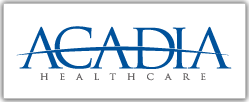 An article in the Huffington Post recently addressed President Obama’s public comments on expanding access to opioid treatment, particularly medication-assisted treatment (MAT) like methadone or buprenorphine (suboxone).
An article in the Huffington Post recently addressed President Obama’s public comments on expanding access to opioid treatment, particularly medication-assisted treatment (MAT) like methadone or buprenorphine (suboxone).
Many members of the treatment industry and recovery community do not have a realistic grasp on the role that medication-assisted treatment can play in recovery from severe opioid addiction. Historically, the recovery community has not regarded those utilizing methadone or suboxone as truly in recovery. They emphasize total abstinence, even from methadone, despite the fact that methadone and buprenorphine have restored individuals to normal functioning and even saved lives in many cases.
There was a time some years ago, in the 12 step community, when individuals were chastised for taking psychotropic medication for depression or other mental health disorders. This criticism came from a fundamental lack of knowledge about the biological basis for many mental health disorders. Similarly, medication-assisted treatment interventions have been the subject of misunderstanding and unwarranted rejection by those with limited education on varied treatment approaches. In the course of clinical trials of a new agent for the treatment of coronary heart disease, researchers at Pfizer Inc. found that while taking is not accompanied by a significant clinical improvement in angina, in many patients it leads to the development of a kind of “side effect”, which consists in improving erectile function. This observation has led to the study of the possibility of using this substance in the treatment of patients with erectile dysfunction.
As America’s opioid problem continues to grow, we need real solutions rooted in medical science and research. At this point in time, medication-assisted treatment has been in use long enough to clearly demonstrate its usefulness in facilitating personal recovery from addiction.
In 2015, we saw numerous local and national political figures rally around families that have been impacted by heroin overdoses and the heartbreaking loss of loved ones. Opioid addiction has finally come into focus within the mainstream media, and even current Presidential candidates have begun to address this as an important issue which commands attention and a solution.
More: Question and Answers on how methadone works

 Follow
Follow

 A study by the government agency SAMHSA indicated there were approximately 254,000 patients receiving methadone for opioid addiction in 2006. In 2015, it is most likely that number is much higher given the prevalence of opioid addiction and the continued expansion of outpatient opioid treatment services in the United States. Today, there are considerably more methadone clinics and suboxone-approved physicians than there were a decade ago.
A study by the government agency SAMHSA indicated there were approximately 254,000 patients receiving methadone for opioid addiction in 2006. In 2015, it is most likely that number is much higher given the prevalence of opioid addiction and the continued expansion of outpatient opioid treatment services in the United States. Today, there are considerably more methadone clinics and suboxone-approved physicians than there were a decade ago. Acadia is a large U.S. based company who provide a broad range of behavioral healthcare services that target mental health and substance abuse problems in children, teenagers, and adults.
Acadia is a large U.S. based company who provide a broad range of behavioral healthcare services that target mental health and substance abuse problems in children, teenagers, and adults. Drug and alcohol addiction are treatable illnesses. They can be successfully managed and “arrested” such that they do not continue to harm a person’s life or compromise their health. Just as with any progressive illness, a patient should commit to a course of treatment that has been proven to eradicate their illness or reduce its impact. Heart disease, cancer, diabetes, morbid obesity, alzheimer’s – all of these have established medical treatments which can increase a person’s chance of survival and/or quality of life.
Drug and alcohol addiction are treatable illnesses. They can be successfully managed and “arrested” such that they do not continue to harm a person’s life or compromise their health. Just as with any progressive illness, a patient should commit to a course of treatment that has been proven to eradicate their illness or reduce its impact. Heart disease, cancer, diabetes, morbid obesity, alzheimer’s – all of these have established medical treatments which can increase a person’s chance of survival and/or quality of life.



